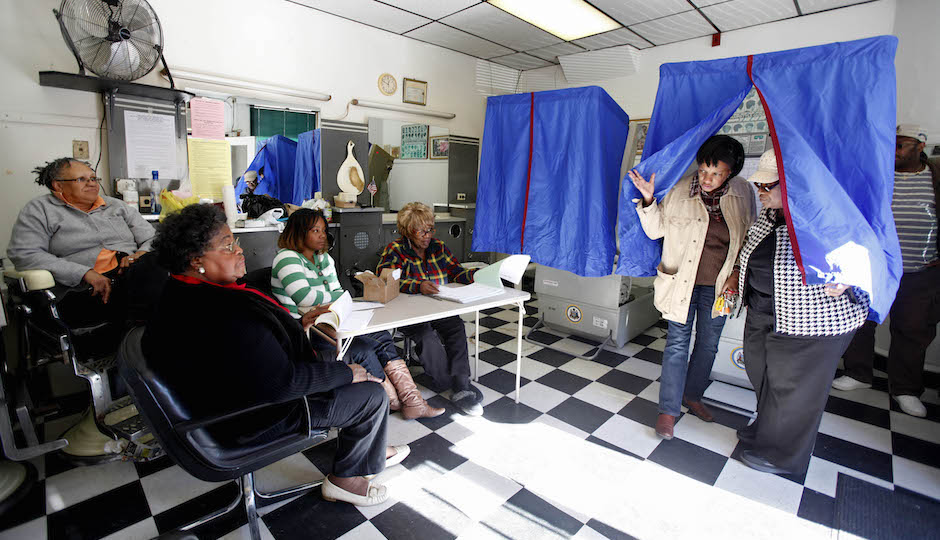Why Voter Turnout Sucked in Philly’s Mayoral Race
1. Voter turnout in Philadelphia wasn’t always so pitiful.
The gist: Only 27 percent of registered voters cast a ballot in Philadelphia’s mayoral primary last week. It wasn’t always like this. In 1991, 49 percent of Philly voters came to the polls. In 1987, 67 percent did; in 1971, a stunning 77 percent did. Other big cities such as Los Angeles, Chicago and New York have also seen voter turnout plummet in municipal elections over the past few decades. CityLab’s Daniel Denvir has a theory about why that may be:
Turnout peaked in these local elections starting in the late 1960s through to the early 1980s, when intense civil rights activism translated street power to electoral might and met white backlash at the polls. I suspect that political machines drove voters to the polls through the mid-twentieth century; racially-charged elections then heightened voter attention; and, finally, the shift from white dominance to white population decline remade urban politics into the quiet affair (in relative terms) that it remains today.
Why it matters: As Denvir writes, “who turns out in local elections might actually matter more” than who turns out in national races. Political scientist Zoltan Hajnal says voters who are elderly, white, educated and wealthy are more likely to come to the polls in municipal elections than those who aren’t. Denvir notes that Hajnal says higher turnout in these races could partly eliminate the underrepresentation of minority groups in city government; plus, “municipalities with higher turnout spend more on welfare and other redistributive programs favored by minorities and less on areas favored by more advantaged white interests.” A quick look at Philadelphia’s voting data shows that turnout in last week’s election was higher in parts of Chestnut Hill, Mt. Airy and the Far Northeast, which have some of the lowest rates of poverty in the city. Conversely, turnout was more depressed in parts of North Philly, where poverty is more concentrated.
2. Could Council challengers Derek Green, Helen Gym and Allan Domb join forces?
The gist: Last week, three challengers won the Democratic City Council At-Large race: former Council aide Derek Green, education activist Helen Gym and “condo king” Allan Domb. If the three succeed in the general election as expected, could they form an alliance on Council? Domb and Green have both said they want to crack down on tax delinquency. Green also told the Inquirer “he hoped to get Domb and school-funding agitator Helen Gym, the third new Democrat to gain the at-large ballot, to back a common revenue and spending agenda, even though they are politically ‘at the two extremes.'”
Why it matters: The idea of Green, Gym and Domb getting together isn’t as crazy as it sounds. One of the most successful partnerships on Council in recent years was between Councilwoman Maria Quiñones-Sánchez, a progressive Latina, and former Councilman Bill Green, a fiscally prudent son of a former mayor. Though they seemed an unlikely pair, the two bonded after becoming Council members in the same year and went on to push through meaningful business tax reform.
3. Want to report illegally parked cars? There’s an app for that.
The gist: A Toronto developer has created an app called “TowIt,” which enables people to snap photos of illegally (or annoyingly) parked cars in hopes of getting them towed. Residents in cities such as New York, Houston and San Francisco have flagged crappy parkers. However, the app is only useful if the authorities pay attention to it.
Why it matters: This seems like it could be a brilliant way to #unblockbikelanes.
#bikePHL #unblockbikelanes I’ve started using @TowItApp to collect blocked bike lanes since hashtags appear to not work anymore.
— frigidlight (@frigidlight) April 29, 2015
